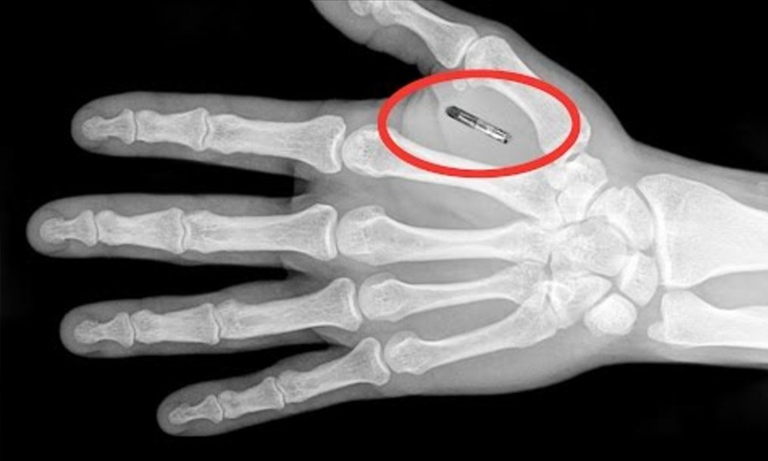 The chip uses radio-frequency identification technology to speed up the lives of the employees, which comes with some benefits
The chip uses radio-frequency identification technology to speed up the lives of the employees, which comes with some benefitsMany people worry about being under constant surveillance; now, it seems that this fear is becoming a reality. Three Square Market recently became one of the first companies in the world to microchip its staff, with this controversial decision resulting in some divided options.
All employees at Three Square Market are microchipped
The Wisconsin-based technology company Three Square Market is not usually known for stealing headlines. It is very likely that you have never heard of it before today; however, the company recently microchipped the majority of its employees, which brought it into the spotlight. Why did it choose to do this?
The microchips are designed to replace employees’ company identity cards, making it easier for them to log onto work computers, open locked doors, and buy food and drink from the company canteen. The idea proved to be surprisingly popular, with 50 employees – out of 80 – choosing to have a microchip roughly the size of a grain of rice implanted between their forefinger and thumb.
The chip uses radio-frequency identification technology to speed up the lives of the employees, which comes with some benefits; however, many people are worried about the possible negative effects of being microchipped. Many media outlets source privacy as the main reason for concern; however, it is important to note that these chips do not have GPS, meaning that the company cannot see the location of its employees.
The vice-president of Three Square Market told the BBC that the chips are like those in credit cards and only exist to make life more convenient, rather than existing to monitor employees.
The future of microchipping
While Three Square Market may be one of the first companies to use microchipping on the majority of its employees, it is certainly not the only company. Many companies in Sweden are encouraging their employees to be chipped, such as digital hub Epicenter, and it is likely that more businesses will follow suit in the next few years.
Is microchipping legal? This is a slight grey area, as it is a new issue that has not been faced by previous generations. So far, it seems to be legal as is entirely voluntary – if an employee does not want to get chipped, they will not lose their job because of their decision.
This could mean that chipping will stay legal; however, if companies start to push the idea, laws may be created to protect employees.
There is a possibility that microchipping will become a big part of business in the future. If this happens, it is important to be aware that any UK employee would have to freely consent to being chipped.
Something that would also need to be considered is what happens when employees leave the company. It is likely that most businesses would have to legally remove the chips for security and safety reasons.
Recruiters love this COMPLETE set of Accredited Recruitment & HR Training – View Training Brochure








